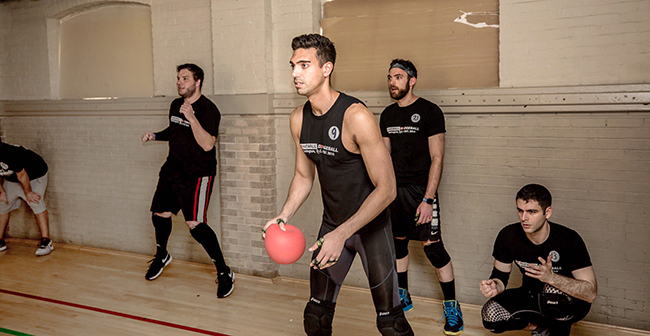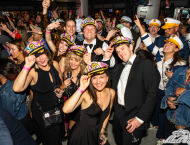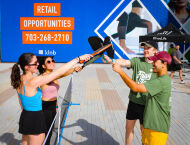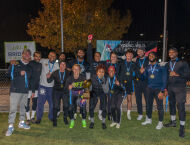
Stonewall Sports: Builds Community On and Off the Playing Field
June 1, 2019 @ 12:00am
Sports bring people together. Playing or watching games builds camaraderie, helps you establish rapport with teammates and, frankly, is an astonishingly effective ice breaker for folks who may otherwise be inclined to avoid strangers. There are a ton of options for people looking to participate in athletics on a social level after they leave high school or college locker rooms.
Stonewall Sports added their name to the list of national social sports organizations nearly a decade ago – but with a more focused mission. Yes, games are played and friendships are fostered, but Stonewall also carries the namesake of the Stonewall Riots, which pitted members of the LGBTQ+ community against police officers in New York City in 1969.
Stonewall Sports describes itself as an LGBTQ+ and ally community-based nonprofit that combines the fun of sports with the initiative to raise funds for other local nonprofits. The organization currently boasts a presence in 16 cities with 12,000 participants nationally, including a thriving DC chapter.
“I moved to DC about five years ago and Stonewall Sports had a very good presence in DC,” says Frank Criscione, Stonewall’s DC manager of community engagement. “Our community engages with locals, whether it be through philanthropic opportunities or volunteering.”
When Criscione moved to the District, he didn’t know many people. After hearing about Stonewall, he figured sports might provide the best opportunity to get to know the area and meet locals.
“It’s better than most ways to meet people, like at bars,” member Anthony Musa says. “This is an alternative way to do that and you get introduced to a diverse group of people with different backgrounds.”
Another factor that sets Stonewall apart is its mission to make members of the LGBTQ+ community feel comfortable in an atmosphere that may not always seem inclusive.
“I think it goes back to the PTSD of being an adolescent in sports,” Criscione says. “It goes back to that feeling of being the gay guy. It’s nice to know that I’m not the only gay guy on a team.
I’m on a whole team of gay guys. You don’t think about the social pressures of how you have to act or perform in that atmosphere. You get to rekindle some of the magic for sports you used to enjoy without those pressures.”
Criscione mentions he focused on individual sports growing up, but Stonewall gives him a chance to be a part of a team as opposed to competing alone. The organization currently offers everything from flag football and dodgeball to climbing.
“It’s a lot of fun, and it can be competitive depending on what you’re looking for,” Musa says. “It’s fast-paced and relatively easy to pick up. It’s a good way to interact with people you may not ordinarily talk to.”
Both Musa and Criscione gush about the fun had on the courts and fields, but the good times don’t stop there. As newcomers to DC, each points out that the teams don’t stop conversing after the final whistles. Meetups and even parties often follow.
This kind of openness helps Stonewall members in their volunteer fundraising efforts as well, as those represent the organization’s heartbeat and give the members another way to work toward an incredible achievement.
“I think Stonewall has a great impact on the community,” Criscione says. “I get to remind newcomers that it’s more than a sport. It’s being involved.”
Get involved with Stonewall Sports at https://stonewallsports.leagueapps.com.







